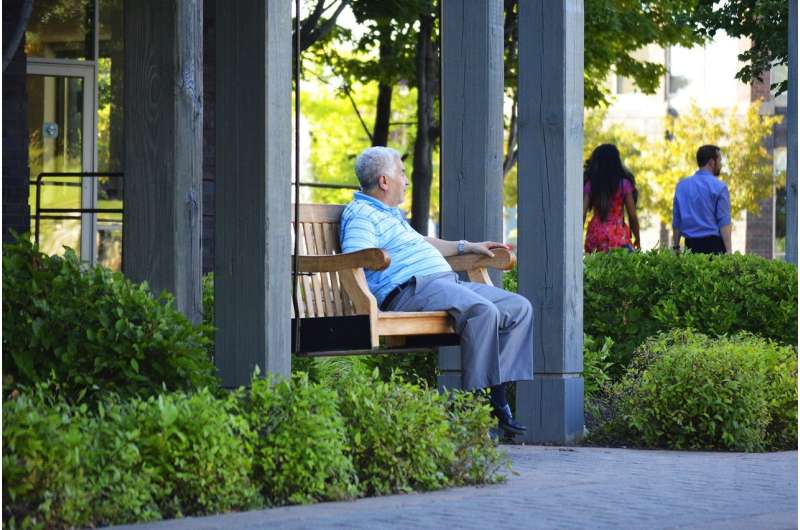Credit: CC0 Public Domain
Statements about building walls, deportation and denying services to undocumented immigrants made during Donald Trump's 2016 presidential campaign and presidency may be linked to feelings of fear among Latino populations and create barriers to health care access, according to a study published October 30, 2019 in the open-access journal PLOS ONE by Robert Rodriguez from the University of California San Francisco, USA, and colleagues.
According to the Pew Research Center, approximately 8 million undocumented Latino immigrants lived in the US during 2016. During this year, Trump made deportation of "illegal immigrants", especially those from Latin America, a cornerstone of his presidential campaign; as president, he has continued to promote hard-line stances towards immigrants. To gauge the public's perception of Trump's statements on immigration, the authors surveyed 452 Latino undocumented immigrants, 473 Latino legal residents, and 393 non-Latino legal residents at three county emergency departments in California between June 2017 and December 2018 (1,318 participants total). Compared to legal Latino and non-Latino residents, the undocumented Latino immigrants were younger, more often female, and less likely to have health insurance or access to primary care.
Around 95 percent of all Latino residents and 85 percent of non-Latino residents had heard statements about immigrants during Trump's presidential campaign. Across all groups, about 88 percent of participants believed that threatened measures to deport immigrants or deny them services were already being enacted or would be enacted in the future.
When asked whether these statements on immigrants made them feel worried or unsafe in the US, around 75 percent of undocumented Latino immigrants and half of legal Latino residents responded "yes" (as well as 35 percent of non-Latino legal residents). When asked whether the statements made them feel afraid to seek emergency care, almost a quarter of undocumented Latino immigrants responded "yes", compared to about 4 percent of legal Latino and non-Latino residents—and 55 percent of these undocumented respondents stated that their fear had delayed their trip to the emergency department by a median of two-to-three days.
This study is limited by the fact that the authors' findings are based on participants' self-reported perceptions during visits to the emergency department at one point in time for each respondent. Thus, it is not possible to infer the impact of Trump's statements on perceptions over time. It's also important to note that the survey instrument was not fully validated.
However, the fact that high rates of both legal and undocumented Latino residents report feeling generally unsafe (in California, which is notably a sanctuary state), in addition to the concerning proportion of undocumented immigrants who reported fear to access emergency care, suggests that the effects of the president's statements may be widespread in the nationwide Latino population.
Rodriguez adds: "Although traditional media and polling organizations have assessed US voters' responses to the president's statements about measures against immigrants, very little is known about how these statements affect immigrants themselves. In this eighteen month study conducted at three county emergency departments, we found that the president's threats of deportation and denial of basic services are inducing safety concerns and anxiety in Latino populations—both undocumented Latino immigrants and Latino U.S. citizens. Statements by the president have made immigrants fearful of coming to the hospital for emergency care, thereby creating a health care access barrier and compromising the public-health/safety-net function of emergency departments."
More information: Rodriguez RM, Torres JR, Sun J, Alter H, Ornelas C, Cruz M, et al. (2019) Declared impact of the US President's statements and campaign statements on Latino populations' perceptions of safety and emergency care access. PLoS ONE 14(11): e0222837. doi.org/10.1371/journal.pone.0222837
Journal information: PLoS ONE
Provided by Public Library of Science





















